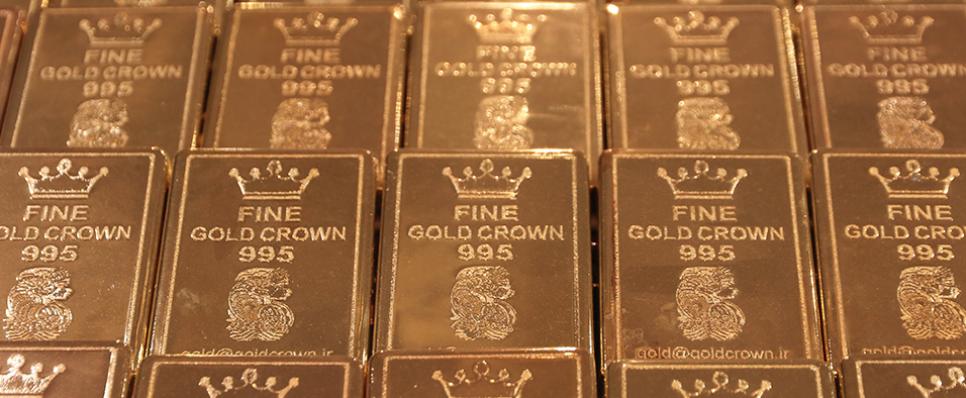Published: 28 Sep 2020
How COVID-19 has affected central banks gold reserves

Central banks around the world hold gold for a variety of reasons, many of which mirror why investors like you include gold in your portfolio.
Germany's Deutsche Bundesbank, said, "Gold is a type of emergency reserve which can be used in crisis situations when currencies come under pressure". This statement brings to mind gold's powerful role during financial crises and unforeseen emergencies, which was on display during the 2008 financial crisis, and the ongoing pandemic. The Bank of England Handbook calls this the "war chest" argument for holding gold. So, one reason central banks depend on gold is because it is "particularly useful in times of heightened economic turmoil (domestic or abroad) or geopolitical tensions," as explained by the National Bank of Romania1.
Another essential reason central banks hold gold is its ability to diversify risk. According to the Swedish Riksbank1, the oldest central bank in the world, "Gold does not normally follow the same pattern as the value of the currency reserve. Consequently, the combined value of the gold and currency reserve is more stable". The Polish central bank, Narodowy Bank Polski1 has myriad reasons for trusting in gold, which summarise the motivations for many other central banks: "lack of credit risk, independence from any country’s economic policy, the limited size of the resource, physical features such as durability and almost imperishability."
But what is it about gold that makes it a popular choice among central banks during the pandemic?
Rising demand for gold as a reserve asset
Gold traditionally performs well during an economic crisis. What makes it further safe is that gold acts as a hedge against market fluctuations. And now as governments continue to increase public spends to release stimulus packages into the economy and ward off the negative impact of the pandemic, gold's importance as an inflation hedge persists. But the performance of gold is not dependent on the performance of other assets or stock markets around the world, which makes it an essential choice for central banks.
Central bank gold buying has been strong in recent years. Central banks purchased around 667.7 tonnes of gold in 2019. This followed the heavy spell of gold buying by the central banks in 2018 when 656.6 tonnes were purchased. In the 2020 Central Bank Gold Reserves survey, 20% of the respondents expressed interest in buying gold, compared to 8% in the previous year’s survey. It is clear from the survey response that the demand for gold as a reserve asset will continue to rise amid the pandemic.
Related:How gold saved India's economy
Why gold is used as a reserve asset?
Gold is bought by central banks because it offers – safety, liquidity and returns. As we will understand below, gold meets these core expectations prominently during a crisis like the COVID-19 pandemic.
Safety –While interest rates are falling globally due to the pandemic, gold continues to hold its value. It is not dependent on the performance of any other investments, the solvency of the nation(s) or monetary policies. It is free from any default or counter-party risks. It is during times of crises that the safe proposition of gold is particularly evident. Volatility indices perform well but are often not sustainable. Therefore, it is not a surprise that central banks find gold a safe reserve during crises. To know more, read How can gold be your friend during financial crises?
Liquidity –Gold is one of the most traded assets in the global financial market. This makes it highly liquid, and suitable for high volume sales. Central banks like their reserve assets to be universally acceptable. A large volume of gold is transacted across platforms like futures trading, over-the-counter spots, derivatives contracts, gold exchange-traded funds and as collateral in the gold swap market. If, say, a central bank decides to inject some cash into its economy to recover from the pandemic, a quick gold trade is always an option. Gold's "ability of instant liquidation in case of an emergency" is actually one of the top two reasons the Bank of Greece1 holds gold as a reserve asset, the other being its "recognition as a safe-haven asset during market unrest".
Return –Over the last 50 years, gold has yielded an average return of around 10% annually. Based on its historically consistent returns, gold is considered to be a safe hedge to beat inflation. Even in the last ten years, gold has seen sharp annual falls only twice, in 2013 and in 2015. 2013 saw an overall fall in the commodities and gold market, with high-volume computerised trading identified as a cause. The fall in gold prices in 2015 was on the back of a strong US Dollar and increase in interest rates. On the other hand, the healthy returns on gold in 2019 and 2020 outperformed Europe, Australia and Far-East stocks and commodities. Not surprisingly, wealthy nations like the USA and Germany also have the highest gold reserves. Even when RBI added to its gold reserves in April 2020, as it has done since December 2017, experts have noted that it is a decision taken on the bank’s faith on gold’s long-term prospects.
Related:How is the gold market expected to evolve in the coming decade?
After nations shifted from the gold standard to paper currency, foreign exchange has dominated central bank reserves. However, shifting the reliance entirely to foreign exchange can lead to problems like hyperinflation. This is a situation where currency notes lose their purchasing power significantly. Most recently and consistently, this has happened in Zimbabwe, where currency notes range from ZWD 10 to ZWD 100 Billion. This is a typical situation where holding gold would help a nation and its citizens cope with inflation.
Coming back to the present context, the public health crisis has led to lowering interest rates, indications of wholesale price deflation, and volatile stock markets. But this has also been the period when gold prices have touched record highs. Such situations are exactly when gold is relied upon as a feasible alternative to foreign exchange and other investments. And central banks' increased gold buying only bolsters this belief. Even as economies open back up around the world, gold will help usher in a renewed sense of financial security.
Sources:
4 Ways to check gold prices before you buy
https://www.gold.org/goldhub/data/2020-central-bank-gold-reserve-survey
https://www.centralbankgold.org/
https://www.gold.org/what-we-do/official-institutions/central-bank-gold-agreements
https://www.macrotrends.net/1333/historical-gold-prices-100-year-chart for gold annual return trends
https://www.bullionstar.com/blogs/ronan-manly/worlds-central-banks-hold-gold-words/











